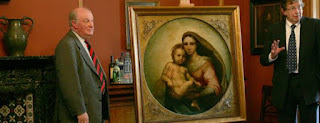AI and the Future of Art History;
The Digital Disruption;
Artificial Intelligence (AI) is rapidly reshaping various industries, and the world of art is no exception. With advancements in machine learning and neural networks, AI-generated art is becoming increasingly sophisticated and indistinguishable from human-created pieces. This technological revolution is poised to fundamentally alter the course of art history.
The Democratization of Art Creation
One of the most significant impacts of AI on art history is the democratization of art creation. Traditionally, artistic expression was limited to those with the skills and resources to produce physical works. AI tools, however, make it possible for anyone, regardless of their artistic abilities, to create unique and visually stunning pieces. This democratization has led to a surge in creativity and innovation, as individuals from diverse backgrounds are exploring new artistic frontiers.
Challenging Traditional Definitions of Art;
AI-generated art has also forced us to reconsider the very definition of art. For centuries, art has been associated with human creativity, emotion, and intention. AI, however, can produce works that are visually compelling and thought-provoking, even without the direct involvement of a human artist. This raises questions about the role of intention and consciousness in artistic expression. As AI continues to evolve, we may need to expand our understanding of what constitutes art to encompass a broader range of creative processes.
Preserving Artistic Heritage
While AI presents new opportunities for artistic expression, it also poses challenges for preserving artistic heritage. As digital technologies become more prevalent, there is a risk that traditional art forms and practices may be neglected or lost altogether. To ensure that the rich tapestry of human creativity is preserved for future generations, it is essential to invest in digital preservation efforts and promote the continued practice of traditional artistic techniques.
Conclusion
AI is undoubtedly changing the landscape of art history. By democratizing art creation, challenging traditional definitions, and raising questions about the role of human creativity, AI is forcing us to rethink the very nature of artistic expression. As we navigate this rapidly evolving field, it is crucial to embrace the potential of AI while also recognizing the importance of preserving our artistic heritage. The future of art history is likely to be a fascinating and dynamic one, shaped by the interplay between human ingenuity and technological innovation.



